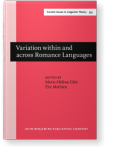On truth persistence
A comparison between European Portuguese and Italian in relation to sempre
Fabio Del Prete | Université de Toulouse Le Mirail cCLLE-ERSS (CNRS & Université de Toulouse 2)
This paper analyzes a non-temporal interpretation of the adverb sempre “always” in European Portuguese and Italian, in which the adverb expresses persistence of the truth of a proposition over time and displays specific contextual constraints (TP-sempre). Despite an overlap in the contexts in which TP-sempre may occur in both languages, we provide data showing that its distribution is not exactly the same in European Portuguese and Italian. In view of these data, we propose that TP-sempre is a modal operator of confirmation in both languages, but that it is more restricted in Italian in that it has a plan presupposition only in this language.
